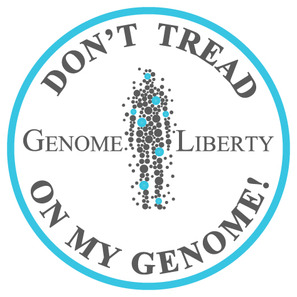 In a paper published in March in the journal Genome Medicine, Dr. Jeffrey Rosenfeld of the University of Medicine & Dentistry of New Jersey and Dr. Christopher Mason of Cornell University contended that due to the non-specificity of sequence uniqueness across the genome and the broad scope of claims to nucleotide sequences, the Supreme Court and Congress should limit the patenting of existing nucleotide sequences ("Pervasive sequence patents cover the entire human genome," Genome Medicine 5:27 (2013)). Their paper was discussed in this space shortly after publication (see "Genome Medicine Article Calls for Limits on Patenting of Existing Nucleotide Sequences" and "Revisiting Genome Medicine Article on 'Pervasive Sequence Patents' That 'Cover the Entire Human Genome'"), and was followed by a response from Dr. Mason (see "Dr. Chris Mason Responds to Blog Posts on Genome Medicine Article"), and then our discussion of the paper and Dr. Mason's response to our coverage concluded with two further posts (see "A Primer on Claim Construction -- Comments on Dr. Mason's Response" and "A Response to Dr. Mason's "Rebuttal" to Criticisms of His Genomics Medicine Article"). Last week, the co-authors of the paper announced that they had started a company, Genome Liberty, Inc., to determine the medications a person should take and the medications a person should avoid based upon that person's DNA.
In a paper published in March in the journal Genome Medicine, Dr. Jeffrey Rosenfeld of the University of Medicine & Dentistry of New Jersey and Dr. Christopher Mason of Cornell University contended that due to the non-specificity of sequence uniqueness across the genome and the broad scope of claims to nucleotide sequences, the Supreme Court and Congress should limit the patenting of existing nucleotide sequences ("Pervasive sequence patents cover the entire human genome," Genome Medicine 5:27 (2013)). Their paper was discussed in this space shortly after publication (see "Genome Medicine Article Calls for Limits on Patenting of Existing Nucleotide Sequences" and "Revisiting Genome Medicine Article on 'Pervasive Sequence Patents' That 'Cover the Entire Human Genome'"), and was followed by a response from Dr. Mason (see "Dr. Chris Mason Responds to Blog Posts on Genome Medicine Article"), and then our discussion of the paper and Dr. Mason's response to our coverage concluded with two further posts (see "A Primer on Claim Construction -- Comments on Dr. Mason's Response" and "A Response to Dr. Mason's "Rebuttal" to Criticisms of His Genomics Medicine Article"). Last week, the co-authors of the paper announced that they had started a company, Genome Liberty, Inc., to determine the medications a person should take and the medications a person should avoid based upon that person's DNA.
In an e-mail distributed last week, Dr. Rosenfeld noted that the co-authors "are extremely proud that there are no longer patents on human genes and that researchers can sequence any gene without the risk of litigation." With respect to the type of analyses that their company will perform, Dr. Rosenfeld provided two examples: first, assaying for individuals who convert codeine to morphine in their livers too quickly, leading to an overdose of morphine (citing Kelly et al., 2012, "More Codeine Fatalities After Tonsillectomy in North American Children" Pediatrics 129(5): e1343-47), and second, testing for a condition known as Factor V Leiden where people who are given estrogen, either as birth control or as hormone replacement, can have severe blood clots. In a follow-up e-mail distributed earlier today, Dr. Rosenfeld indicated that "[f]or a large percentage of medications, there are DNA markers indicating whether [such medications] should be used or avoided, but doctors do not routinely perform these tests."
In a statement released by the co-authors, they note that their company "will democratize the human genome and give people direct access to their own genetic information -- which can have an immediate impact on their health and well being," adding that the Supreme Court's decision in AMP v. Myriad Genetics "opened an era of genomic liberty, allowing people to look at the DNA for all of their genes -- which had been hidden behind patent walls for companies that had a monopoly on such testing." The release states that the company will "begin offering immediate, personalized genetic testing to the public that can be directly ordered by patients," while suggesting that "the results should used in concert with your doctor." The company's founders explain that:
Genome Liberty, with the Supreme Court's blessing, ushers in a new paradigm of personalized medicine, which complements the traditional health care model. Previously, individuals had to rely on their doctors to understand their health and to make proper medical decisions for them. Recently, people are becoming more involved in their own health care, in a phenomenon called "participatory medicine." Various organizations, including patientslikeme.com and the Society for Participatory Medicine, have been leading the charge in this field to overcome inherent weaknesses in our medical system. Many people have found that drugs do not work for them, and they have formed patient groups to attempt to help each other. And, as scientists and doctors have found the molecular basis for disease and drug response, it has become increasingly clear that a "one-size-fits-all" framework for medicine is not in the best interest of each patient.
According to the release, Genome Liberty will be examining genetic markers associated with drug response for "hundreds of frequently prescribed drugs," including codeine, Plavix, Nexium, Prilosec, Zocor, Dilantin, Coumadin, Haloperidol, Abilify, and Celexa, and that the test will cost $99.
In an effort to secure funding for their new company, the co-authors have initiated a crowd-funding campaign on the website RocketHub. As of August 12, 40 funders had committed $8,285 towards a goal of $100,000 to be raised by September 5. The company's RocketHub page includes the following video discussing the AMP v. Myriad Genetics decision and the company's plans:
Please click link for video.